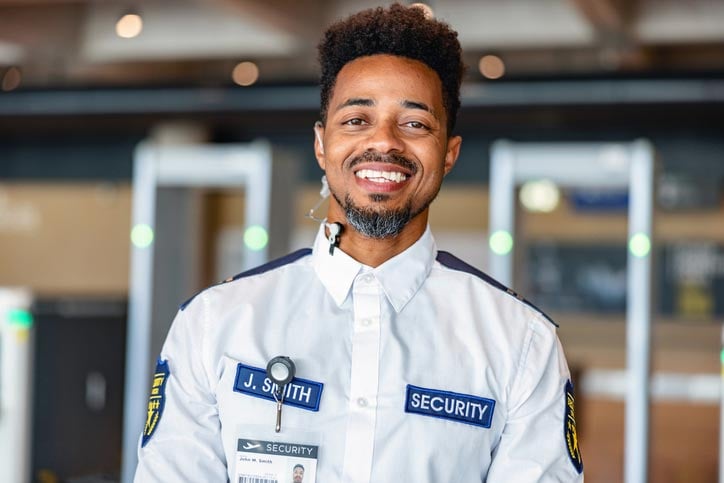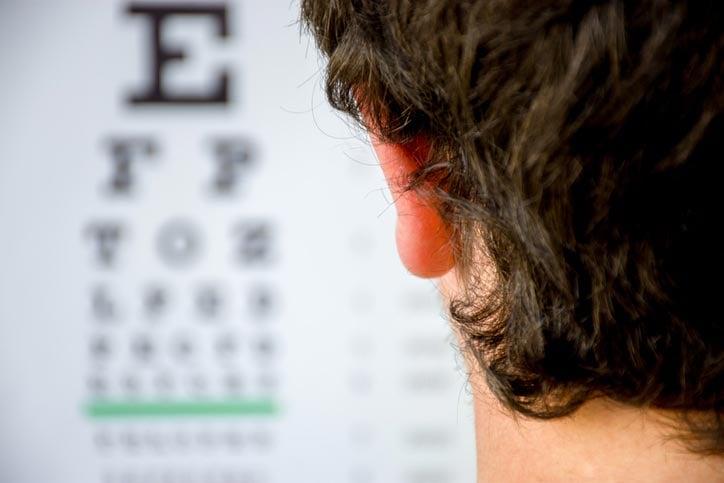
Can I Become a Security Officer with a Disability? Understanding Your Options with Asset College
Empowering Your Decision At Asset College, we believe that every individual should have the opportunity to pursue meaningful training and
Clear, reliable vision is central to many of the duties performed by security officers – from identifying risks in crowded environments to reading instructions, monitoring surveillance systems, and responding quickly to changing situations. At Asset College, we receive enquiries from individuals with vision impairments wanting to know whether they can complete a security course and work in the field.
This article outlines the practical considerations of working in security with a vision impairment. It’s designed to help you assess your own situation, seek appropriate advice, and decide whether this path is right for you.
In emergency or high-risk situations, a delayed or missed visual cue can lead to harm. That’s why it’s essential to assess your capacity to perform these tasks confidently and safely.
Additionally, some specialised security roles – such as X-ray screening at airports or maritime checkpoints – use colour-coded threat identification systems. In these contexts, accurate colour vision is essential, and colour blindness may make such positions unsuitable.
Our training programs are designed to reflect the expectations and standards of real security work. If your vision impairment affects your ability to:
… then you may not be able to successfully complete the course or demonstrate the required competencies.
That said, we won’t prevent you from enrolling – but we will expect you to make an informed choice, and we may request a Fitness to Participate clearance from your treating optometrist or doctor.
We also do not alter assessment tasks that reflect essential job functions – particularly where visual observation is core to competency.
Our trainers are experienced and supportive, and we understand that not all vision impairments are the same. However, we are not clinical experts. That’s why, in situations where there are concerns about safety or suitability, we may ask for a Fitness to Participate form to be completed by your doctor or optometrist.
This helps us understand your condition properly and ensures you are not put at risk during training.
If any of these raise concerns for you, a confidential discussion with our team and your healthcare provider is a helpful next step.
Please note: Training with Asset College does not guarantee that you will be eligible for a security licence or employment in the industry. Licensing decisions are made by the relevant state or territory regulators. Employers may have their own requirements for fitness for duty, availability, and role suitability. We recommend seeking independent medical and professional advice before making enrolment or career decisions.

Empowering Your Decision At Asset College, we believe that every individual should have the opportunity to pursue meaningful training and

Your Rights, Responsibilities and Realities Many people living with a physical disability are interested in working in security. At Asset

Mental Health and the Security Industry Mental health is a vital part of every person’s wellbeing, and many people living

Learning Differences and Career Ambitions At Asset College, we understand that not everyone learns the same way. Many students with

Neurodiversity and the Security Sector At Asset College, we support a diverse range of learners – including those who identify

Vision and the Security Role Clear, reliable vision is central to many of the duties performed by security officers –

Hearing and the Role of a Security Officer Hearing is an important part of situational awareness and communication – two

Managing Health and Career Goals in Security Many people live with medical conditions that require ongoing care, medication, or lifestyle